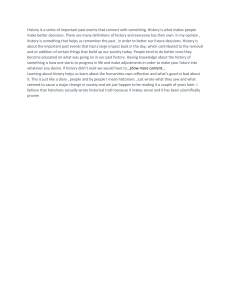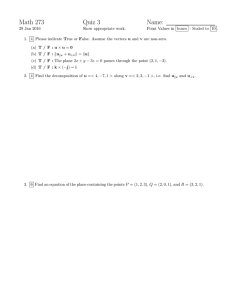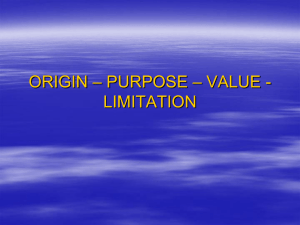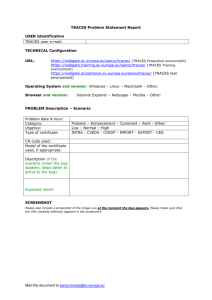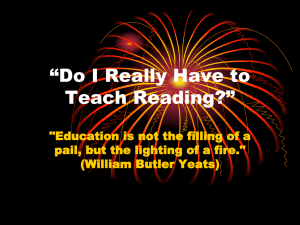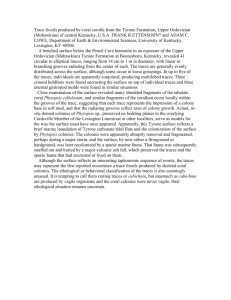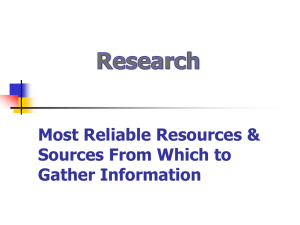Historian Questionnaire
advertisement
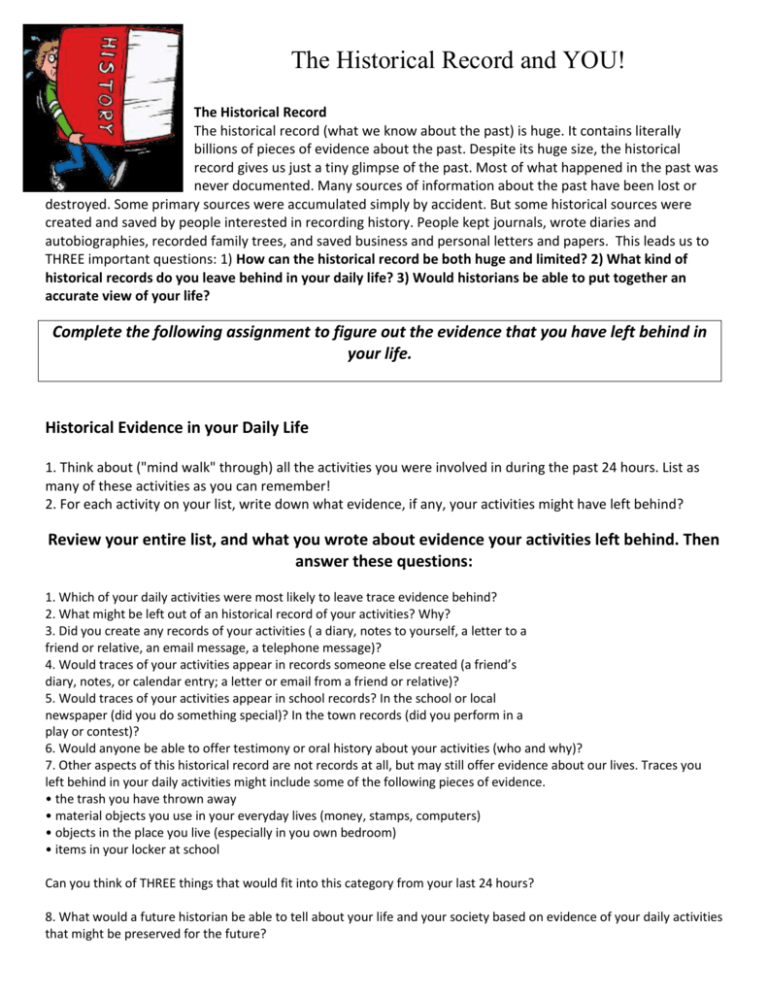
The Historical Record and YOU! The Historical Record The historical record (what we know about the past) is huge. It contains literally billions of pieces of evidence about the past. Despite its huge size, the historical record gives us just a tiny glimpse of the past. Most of what happened in the past was never documented. Many sources of information about the past have been lost or destroyed. Some primary sources were accumulated simply by accident. But some historical sources were created and saved by people interested in recording history. People kept journals, wrote diaries and autobiographies, recorded family trees, and saved business and personal letters and papers. This leads us to THREE important questions: 1) How can the historical record be both huge and limited? 2) What kind of historical records do you leave behind in your daily life? 3) Would historians be able to put together an accurate view of your life? Complete the following assignment to figure out the evidence that you have left behind in your life. Historical Evidence in your Daily Life 1. Think about ("mind walk" through) all the activities you were involved in during the past 24 hours. List as many of these activities as you can remember! 2. For each activity on your list, write down what evidence, if any, your activities might have left behind? Review your entire list, and what you wrote about evidence your activities left behind. Then answer these questions: 1. Which of your daily activities were most likely to leave trace evidence behind? 2. What might be left out of an historical record of your activities? Why? 3. Did you create any records of your activities ( a diary, notes to yourself, a letter to a friend or relative, an email message, a telephone message)? 4. Would traces of your activities appear in records someone else created (a friend’s diary, notes, or calendar entry; a letter or email from a friend or relative)? 5. Would traces of your activities appear in school records? In the school or local newspaper (did you do something special)? In the town records (did you perform in a play or contest)? 6. Would anyone be able to offer testimony or oral history about your activities (who and why)? 7. Other aspects of this historical record are not records at all, but may still offer evidence about our lives. Traces you left behind in your daily activities might include some of the following pieces of evidence. • the trash you have thrown away • material objects you use in your everyday lives (money, stamps, computers) • objects in the place you live (especially in you own bedroom) • items in your locker at school Can you think of THREE things that would fit into this category from your last 24 hours? 8. What would a future historian be able to tell about your life and your society based on evidence of your daily activities that might be preserved for the future?
